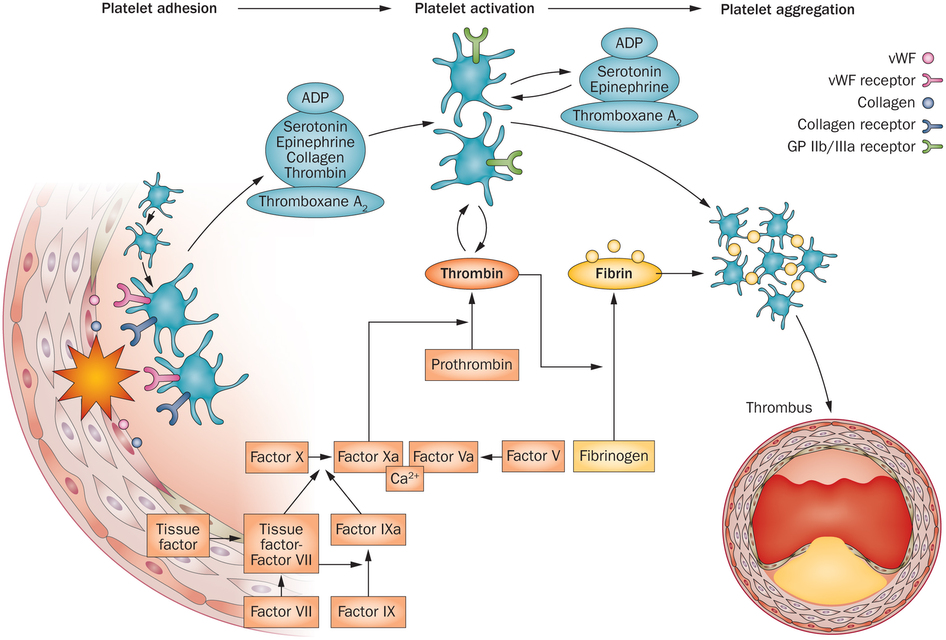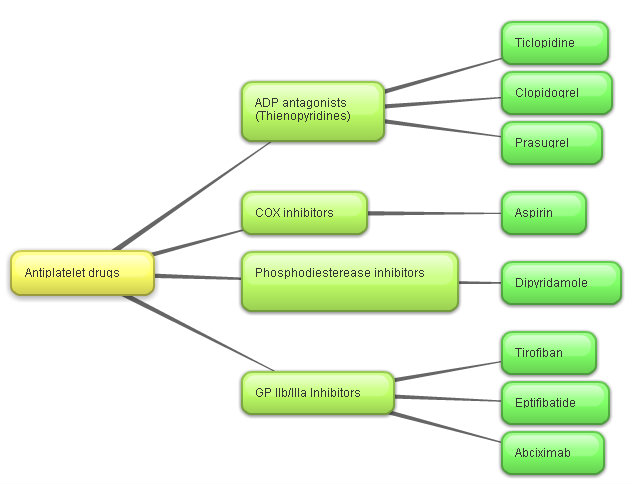AntiPlatelet AntiCoagulant Drugs
Coagulation and Anticoagulatant Therapy
Read part I and part II of this series for background. So you will have a basic understanding of coagulation pathways. Yes, it is complex.
Remember, coagulation or clotting starts with platelet aggregation. That initiates the complex coagulation cascade. This causes the mature thrombus or blood clot. Aggregated platelets with a thick fibrin mesh causes the thrombus. The thrombus causes heart attacks, strokes or thrombophlebitis. Here is the final complete picture:

So let’s discuss anticoagulant therapy medications.
Antiplatelet Agents – Aspirin and Plavix are first line of defense
Figure 2 shows how we prevent platelet aggregation and activation at various stages. Look at figure 1. Aspirin has been the mainstay of antiplatelet therapy. There has been a succession of drugs over the last three decades. Newer antiplatelet drugs supersede older ones. Are these true advances or simply marketing campaigns?

Aspirin has been well studied in the literature. A full 325 mg dose will prevent platelet aggregation. Over time, aspirin has significant adverse reactions. These are direct and indirect reactions. It can cause tinnitus (ringing or buzzing noises in the ear). It can cause major gastrointestinal bleeding. This is a significant problem.